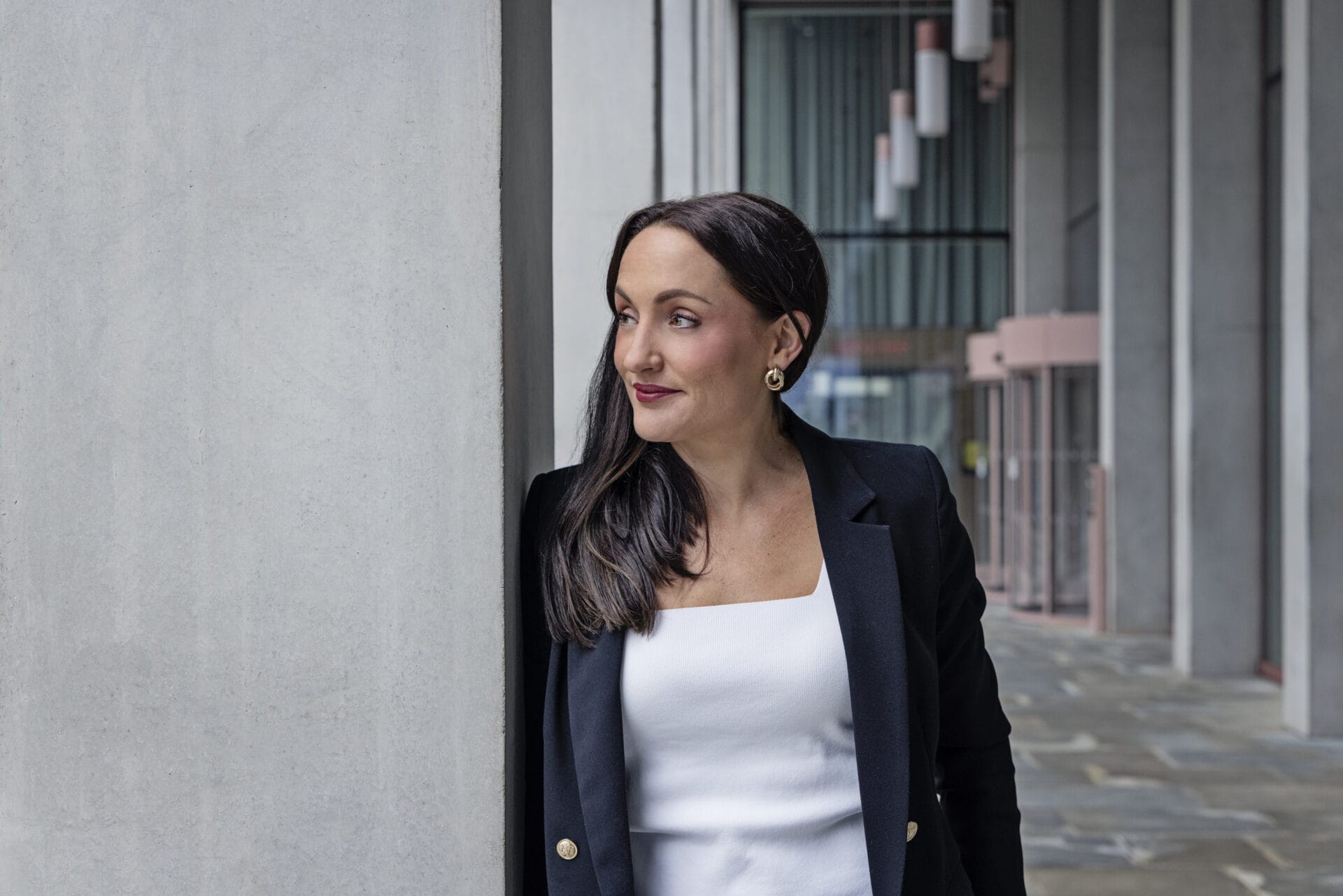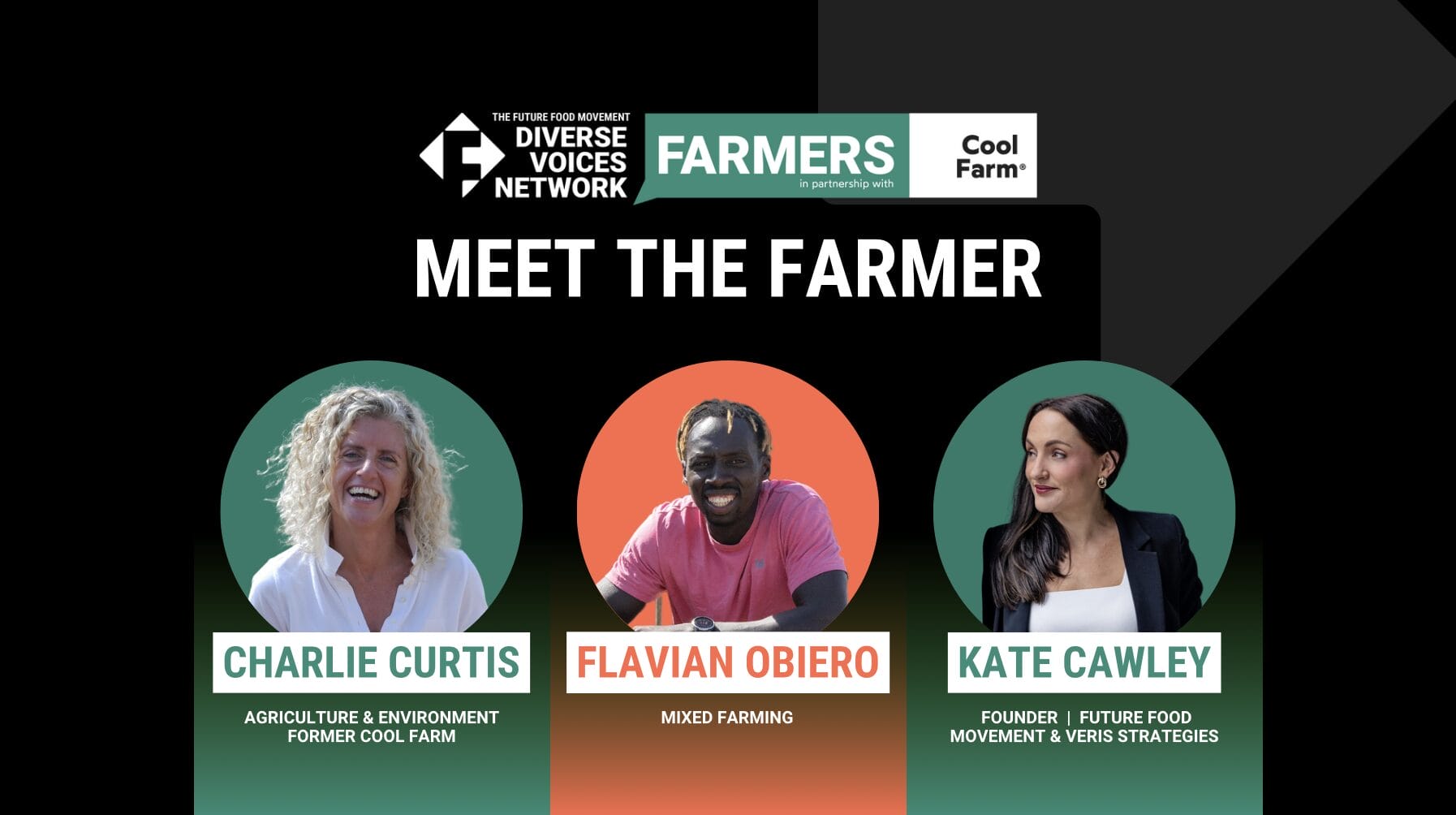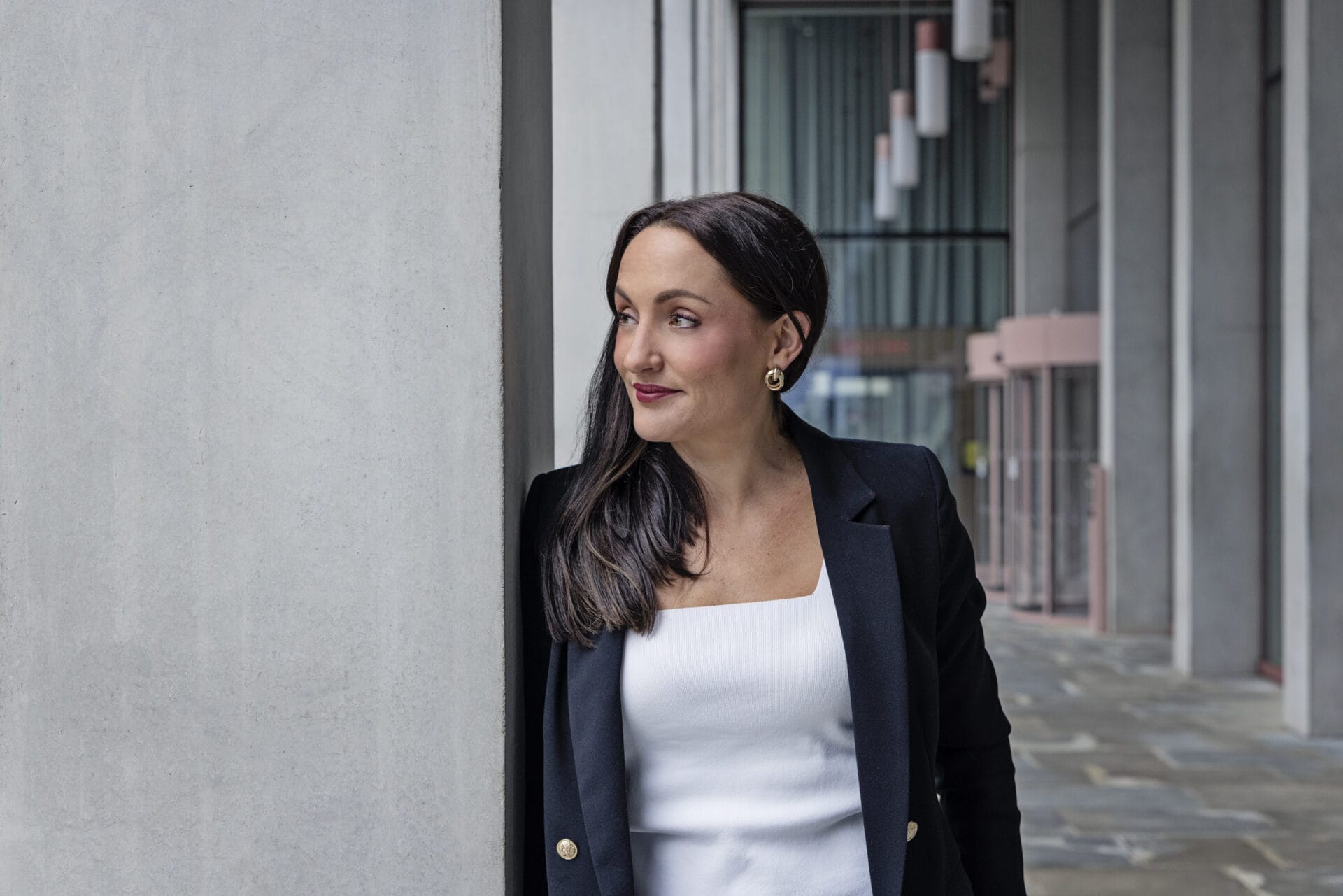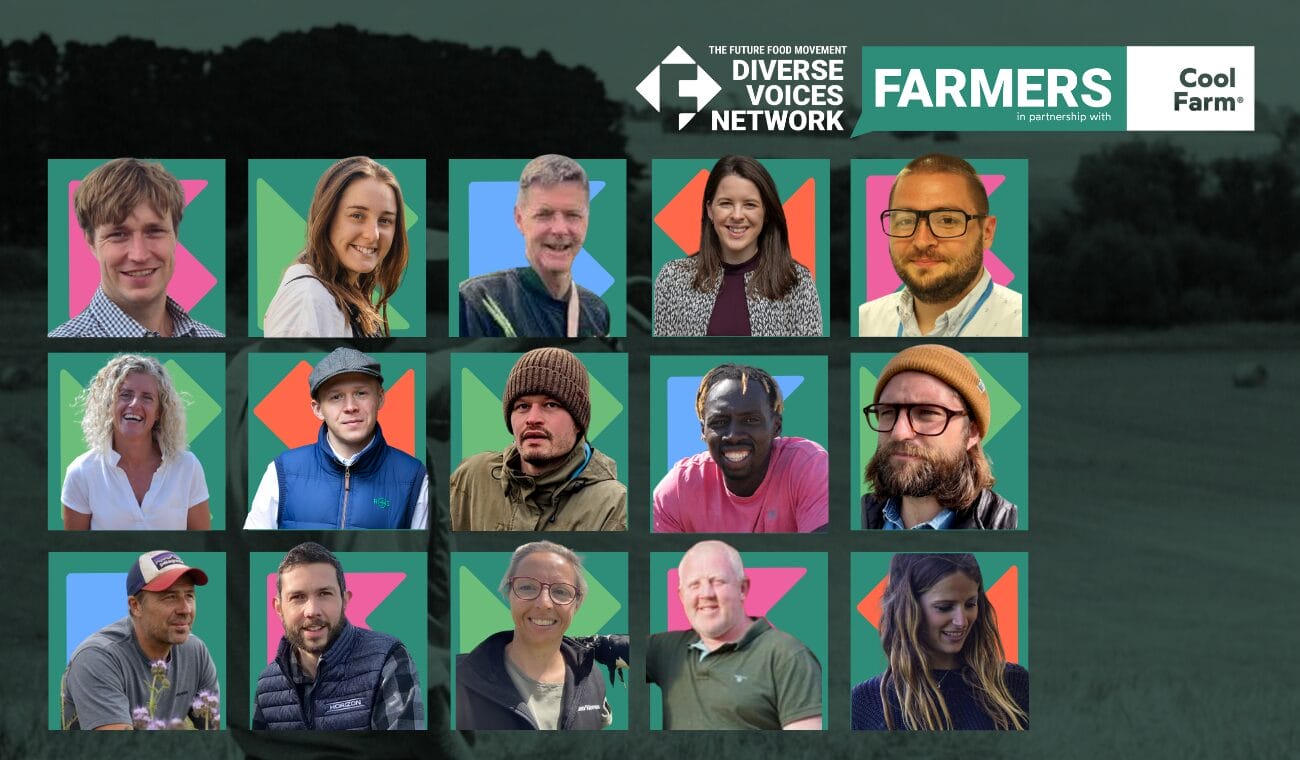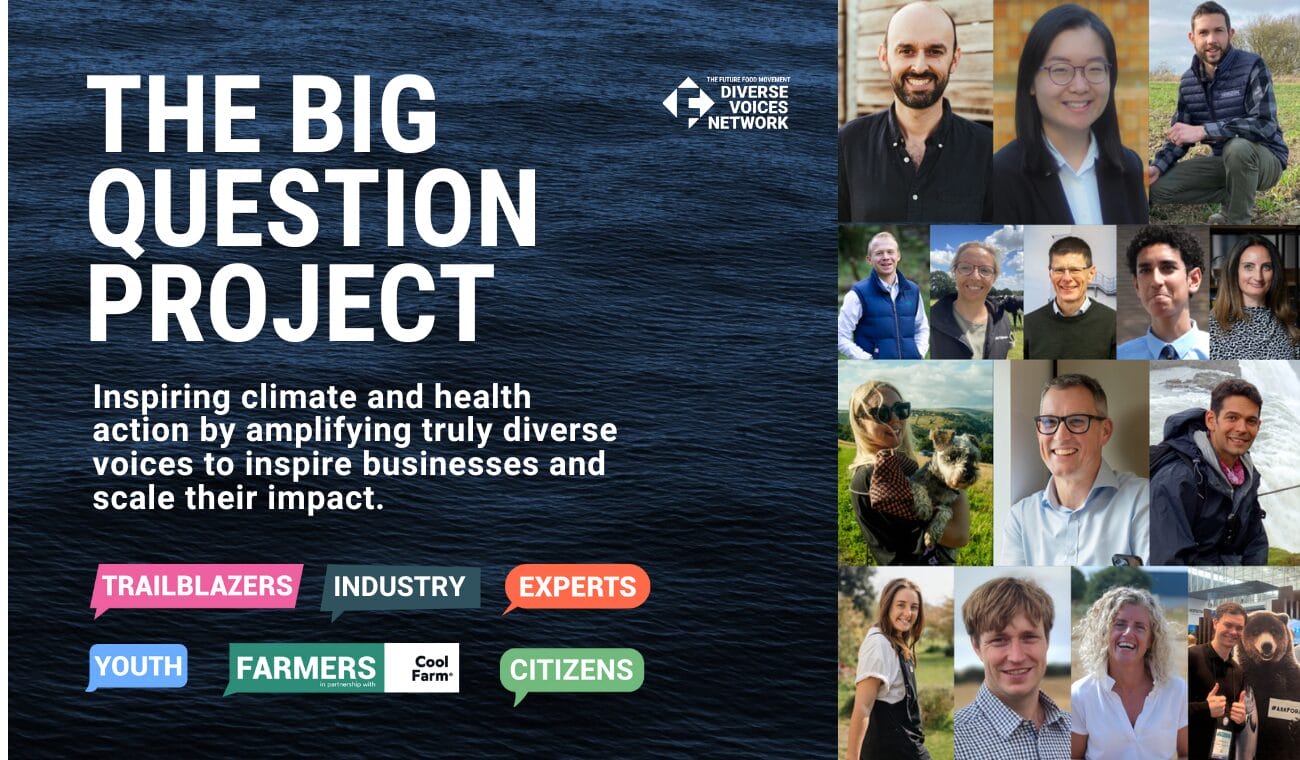

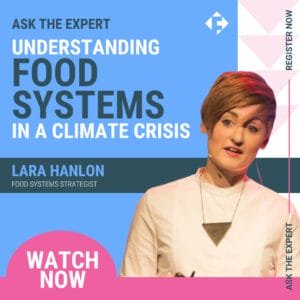
It’s no secret that our food system is incredibly complex. Organisations, products and services are just the tip of the iceberg – for a food system to work properly we also need to consider climate, technology, culture and economics. But taking a whole-picture approach can be daunting. In this Ask the Expert session, FFM coach and founder of Portion Collaborative Lara Hanlon explores how taking a systems approach enables us to analyse how different drivers, factors, people, and parts are connected. This offers us a completely new perspective on the food system as we know it, providing an opportunity to establish the new patterns and behaviours needed to achieve systemic transformation.
“Before we consider systems thinking, let’s just think about what a system is,” says Lara at the start of the session. At a basic level, she says, systems are networks of people, processes or activities (and often combinations of all three). “We might not be consciously aware of them, but systems are all around us, from systems on a massive scale – such as the solar system – to those that are much smaller, and intrinsically personal, such as our digestive systems.”
The one thing all systems have in common, however, is that they’re complex, which makes systems thinking hard to grasp. So why, given their complexity, are we even discussing them as a form of thinking? Lara cites a quote by MIT systems scientist Peter Senge:
“Business and human endeavours are systems… we tend to focus on snapshots of isolated parts of the system, and wonder why our deepest problems never get solved.”
—————————————————————–
TO READ THE FULL WRITE-UP AND ACCESS THIS ON DEMAND EVENT, JOIN OUR COMMUNITY:
Join our Business Membership to upskill your whole workforce. Business rates are here.
MEMBERS LOG IN TO YOUR COMMUNITY ACCOUNT TO ACCESS.



